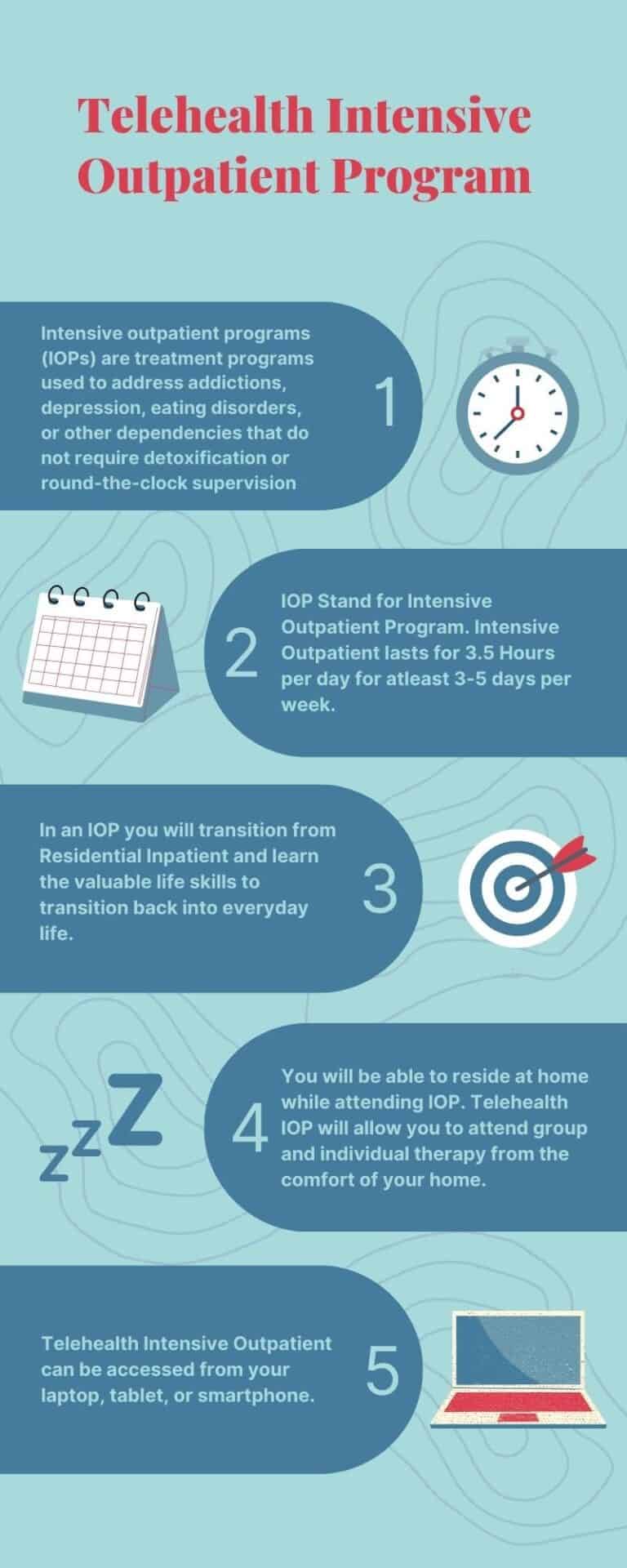Leading Reasons to Consider an Intensive Outpatient Program (IOP) for Mental Health And Wellness.
Leading Reasons to Consider an Intensive Outpatient Program (IOP) for Mental Health And Wellness.
Blog Article
Browsing the Intricacies of Dual Diagnosis Therapy Within an Extensive Outpatient Program Setting
In the world of psychological health and dependency therapy, the intersection of double medical diagnosis presents a nuanced obstacle that requires an extensive and customized approach. By checking out the details of dual diagnosis therapy within this extensive outpatient context, a clearer path emerges in the direction of all natural and sustainable healing for those grappling with these linked obstacles.
Dual Diagnosis Introduction
What is the value of recognizing twin medical diagnosis in psychological health and wellness therapy? It is vital to acknowledge and resolve this comorbidity as it can substantially affect the efficiency of mental health therapy.
Recognizing double diagnosis is essential as it calls for a detailed and integrated strategy to therapy. By acknowledging the interaction between substance usage and mental wellness, doctor can tailor treatments to meet the one-of-a-kind requirements of each person. This alternative approach not just addresses symptoms yet also targets hidden elements that add to the dual medical diagnosis.
Additionally, unattended double medical diagnosis can result in a cycle of regression and intensifying psychological health signs. By recognizing the complexity of twin diagnosis and giving specialized care, medical care professionals can sustain individuals in attaining lasting healing and boosted psychological well-being.
Tailored Treatment Strategies
Identifying the elaborate interaction in between material use problems and mental wellness problems, the development of tailored therapy strategies is critical in attending to the intricacies of dual diagnosis in mental wellness therapy. Customized treatment plans are customized approaches that consider the unique requirements, obstacles, and goals of individuals facing double diagnosis. These strategies are created collaboratively by a multidisciplinary group of specialists, consisting of psychiatrists, psychologists, social workers, and addiction specialists, to guarantee extensive and integrated care.
Tailored treatment plans usually include a mix of therapies, medicines, and behavioral interventions that target both the compound use disorder and the mental health problem at the same time. These strategies may include cognitive-behavioral treatment, dialectical behavior modification, medication-assisted therapy, private counseling, group therapy, and family members treatment, to name a few evidence-based interventions. By customizing treatment strategies to specific scenarios, customized plans can address the origin of double diagnosis, promote lasting healing, and enhance overall lifestyle for people dealing with co-occurring disorders.
Integrated Treatment Strategy

Furthermore, the social facet of incorporated treatment entails dealing with environmental elements that may add to the development or perpetuation important use and mental wellness problems. This can consist of family characteristics, housing instability, or absence of social support. By including social treatments like family members therapy, professional assistance, and area resources, the treatment comes to be much more alternative and customized to the individual's specific needs. On the whole, an integrated care method in dual medical diagnosis treatment within an extensive outpatient program setting intends to supply comprehensive, efficient, and customized treatment to individuals facing co-occurring problems.
Obstacles in IOP Establishing
In the context of double diagnosis therapy within an intensive outpatient program, navigating the intricacies of co-occurring compound usage disorders and mental health conditions offers significant difficulties. Among the primary difficulties in the IOP setup is the coordination of care between mental health experts and compound abuse professionals to make certain a thorough treatment approach. This requires reliable communication, cooperation, and a deep understanding of how these problems interact and influence each other.
Additionally, the ever-changing nature of substance use disorders and mental health and wellness conditions includes another layer of intricacy - Intensive Outpatient Program (IOP). Customers in an IOP might experience sudden shifts in their signs and symptoms or material yearnings, needing punctual treatment and visit our website modification of treatment strategies. Stabilizing the intensity of therapy and assistance while enabling clients the versatility to handle their everyday duties can be a delicate stability to keep
In addition, addressing stigma and resistance to treatment within the IOP setup can hamper progression. Some people may be hesitant to divulge their dual medical diagnosis or may really feel embarrassed, impeding their engagement in the healing procedure. Overcoming these barriers demands a helpful and non-judgmental setting that fosters depend on and openness.

Collaborative Specialist Efforts

Joint initiatives also prolong to normal communication and info sharing amongst group members to make sure a natural treatment strategy. Ultimately, a united front of experts functioning with each other enhances the performance of dual medical diagnosis treatment within an intensive outpatient program.
Final Thought
In conclusion, reliable double diagnosis therapy content within an extensive outpatient program setup calls for customized therapy strategies and an incorporated care method. Difficulties may occur official website in this setup, but collective efforts among specialists can help browse these intricacies. By dealing with the one-of-a-kind demands of individuals with co-occurring mental wellness and material make use of conditions, IOP programs can offer comprehensive and holistic like sustain recuperation and general health.
Report this page